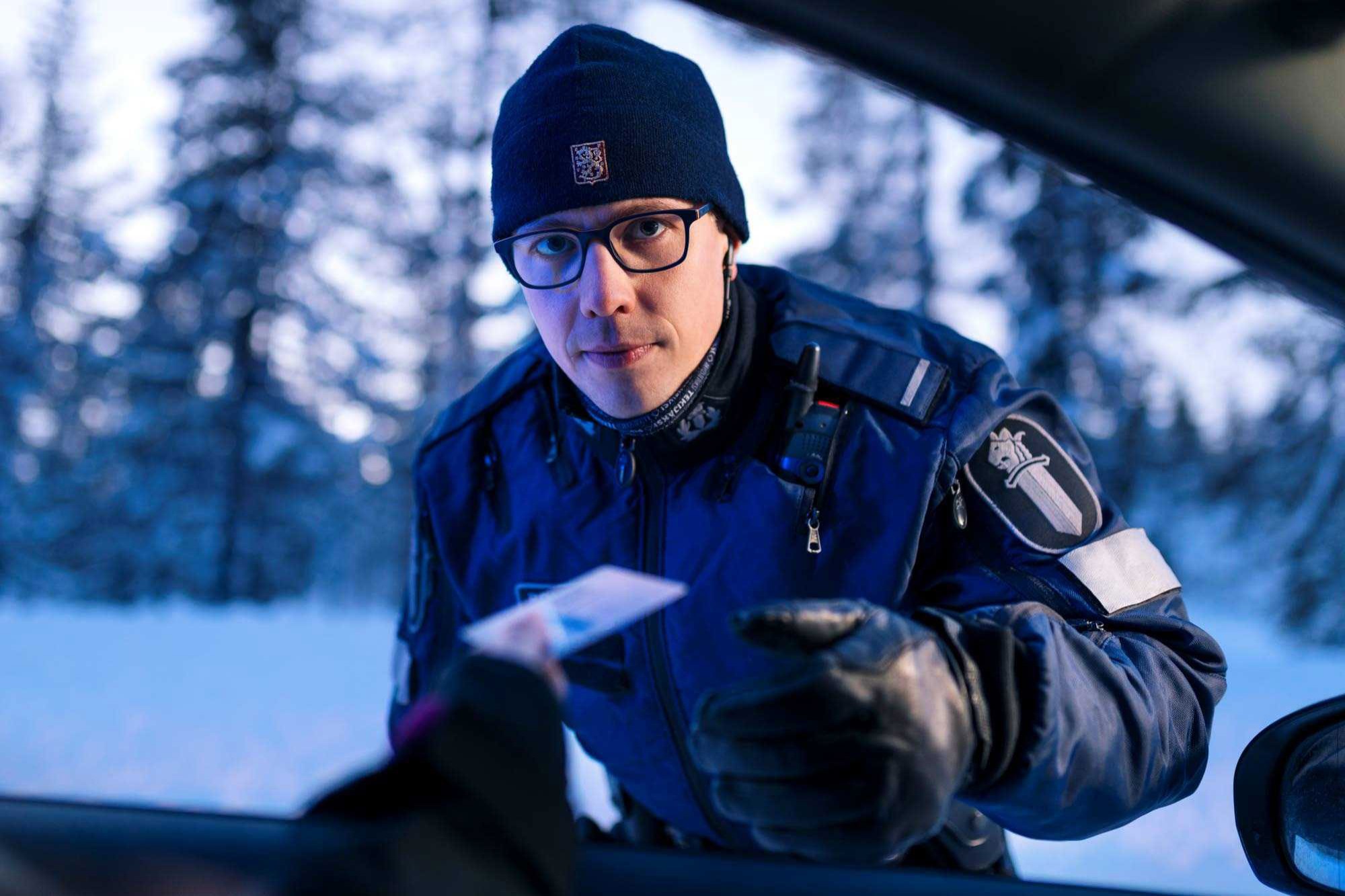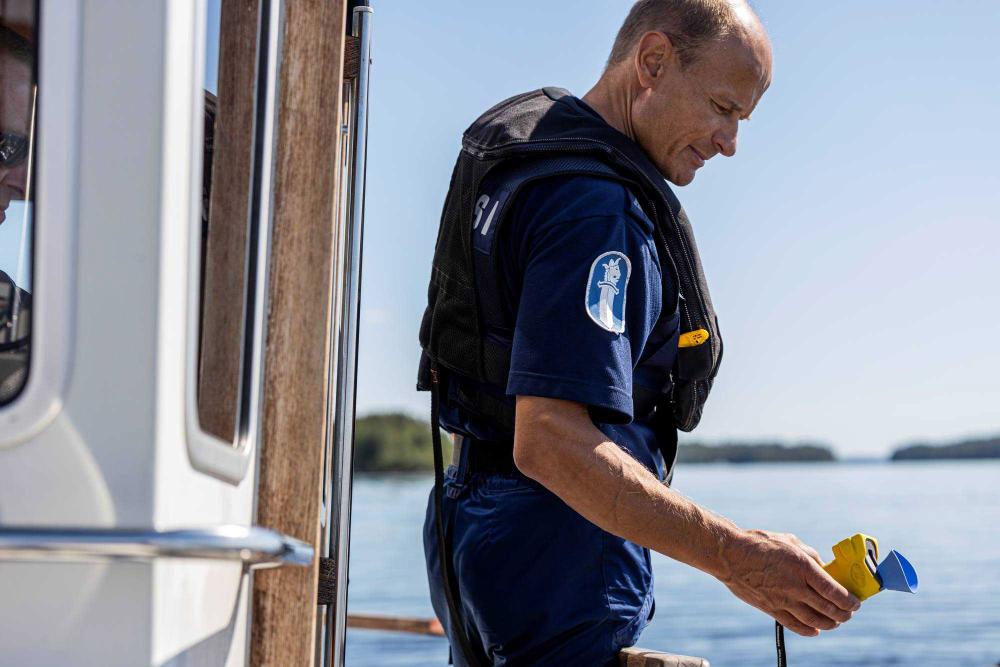Traffic offences
The police detect traffic offences and address them every day. Traffic offences are often discovered in connection with the police’s traffic control or emergency activities. Traffic offences typically pose a danger to others.
The police detect traffic offences and address them every day. Traffic offences are often discovered in connection with the police’s traffic control or emergency activities. Traffic offences typically pose a danger to others.

The Criminal Code includes provisions on traffic offences, such as endangering of traffic safety and driving while intoxicated. A traffic offence may also take place on the water, in the air or in railway traffic.
The sanction for a traffic offence is a fine or imprisonment. Not all infractions committed in traffic are offences; instead, an administrative traffic penalty fee is used to deal with them. The related legislation can be found in the Road Traffic Act and other laws related to road traffic. The traffic penalty fee is also used in water traffic.
The police often deal with the traffic offences detected on site by imposing a fine. The police file a crime report on the most serious offences. In cases of driving while intoxicated, the police conduct a precision breathalyser or blood test on the suspect and file a criminal report.
The police may also impose a driving ban based on certain offences. Such offences include

Endangering of traffic safety means that your actions in traffic endanger the safety of others. This can mean driving much faster than the speed limit, among other things. Endangering of traffic safety is considered to be aggravated when breaking traffic rules, for instance, poses a serious danger to the life and health of others.
In addition to driving while intoxicated, the Criminal Code specifies that waterway, air and rail traffic intoxication is punishable by law. This means that you cannot drive a car, tram, train or aircraft or steer a vessel while under the influence of drugs or alcohol. Performing a duty affecting the safety of an aircraft, a vessel or a train while intoxicated is also prohibited.
The Criminal Code has specified limits on the punishable level of alcohol in blood or exhalation in connection with offences related to driving while intoxicated.
The police always also asses the ability to manage in traffic; it must not be diminished. Even if the amount of alcohol remains under the legal limit, the police may interrupt driving if the driver’s ability to drive has diminished.
Remember that you cannot hand over a motor vehicle to an intoxicated person, either. For example, if you let a drunk friend use your car, you may be guilty of relinquishing a vehicle to an intoxicated person.
If you ride a bicycle while intoxicated, you may be guilty of an offence if you pose a danger to the safety of others. The same regulation also applies to riding an electric bicycle or a light electric vehicle. Driving in an electric wheelchair or riding an electric scooter while intoxicated is also prohibited, if it poses a danger to others. The official name of the offence also known as “drunk riding” is non-motor powered traffic intoxication.
You are not allowed to drive a motorised vehicle without a licence. The driving licence is proof of your right to drive, and you must keep it with you while driving. If the police stop you in traffic, be prepared to show your driving licence. If you drive without a licence, you are guilty of operation of a vehicle without a licence. If you have lost your right to drive due to a previous traffic offence, for instance, and are already under a driving ban, driving without a licence leads to a new driving ban. A new traffic offence can also be taken into account in determining the length of the driving ban.
You may be guilty of flight from the scene of a traffic accident, if you are in an accident and do not stay on site to help the injured. According to the law, parties to an accident are obliged to help the injured to the best of their ability.
Interfering with air, rail or water traffic is prohibited. You may be guilty of interfering with traffic by entering the railway tracks without good cause, for example. The regulations concerning interfering with road and tram traffic can be found in the Road Traffic Act.